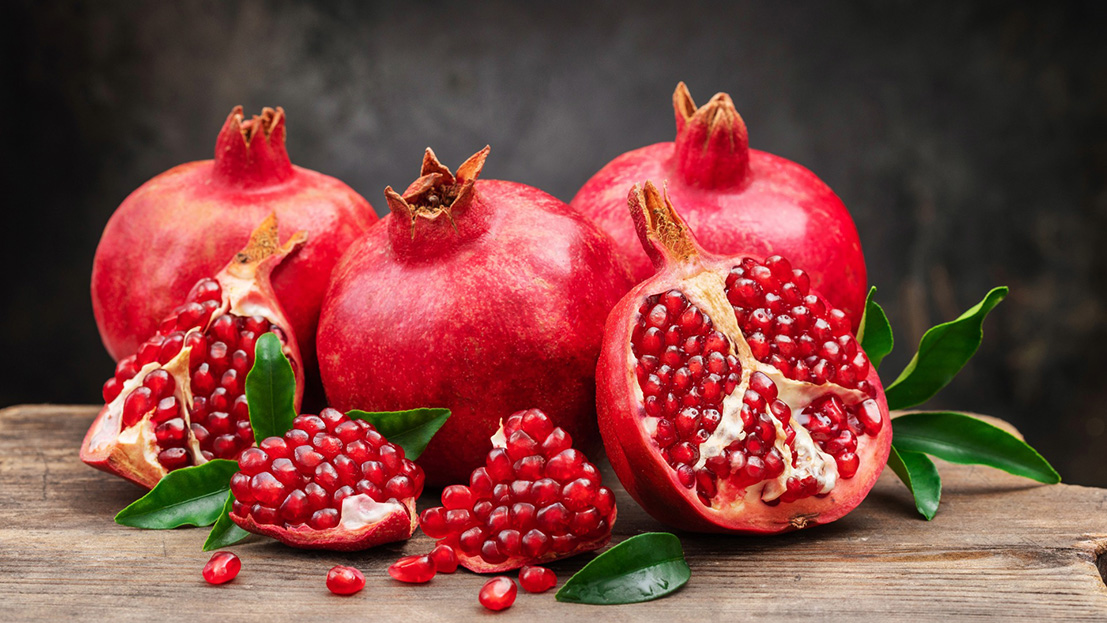
- Fun fact: Pomegranates grow on trees that thrive in warm climates. These trees can live up to 200 years.
- Pomegranate is a member of the Lythraceae family.
- Pomegranate is typically in season September through February in the Northern hemisphere and March to May in the Southern hemisphere.
Nutrition
- 1/2 cup pomegranate seeds are a good source of copper, vitamin C, vitamin K and fiber.
- Copper supports bone, collagen and connective tissue formation, energy production, and nervous system function.
- Vitamin C helps heal wounds, increases absorption of iron and acts like an antioxidant by protecting cells from damage caused by free radicals.
- Vitamin K aids in blood clotting and strong bones.
- Fiber assists in normalizing bowel movements and helps to maintain a healthy weight. Fiber helps with weight control because fiber-rich foods are more filling which means you eat less and stay full longer.
How to Purchase, Prepare, and Store
- Select blemish-free pomegranates that have a ruby-red skin color and are heavy in weight.
- The edible part of pomegranates are the seeds, also known as arils, and juice from the seeds. To consume remove the peel and the pulp.
- Store whole pomegranates in a cool, dry place out of sunlight. The whole fruit can be refrigerated up to 2 months.
- Pomegranate seeds can also be frozen. Freeze a single layer of seeds on a cookie sheet for up to 2 hours, transfer to a plastic freezer storage bag and keep in the freezer for up to one year.
- Prepare the pomegranate by slicing in half or quarters. To remove seeds, submerge the cut fruit in a big bowl of water and gently loosen with your fingers. The seeds will sink while the white pulp will float. Remove the thin membranes from the top of the water and drain seeds using a colander. Or you can slice in quarters and remove seeds from the thin membranes using your fingers.
- To juice, pulse seeds in a food processor or blender and strain liquid using a cheesecloth. One large pomegranate makes 1/3 to 1/2 cup of juice.
- Anardana, the dried seeds of the pomegranate, is a spice used in Indian cuisine. Anardana can be purchased as a powder or dried whole and is often used as a souring agent in vegetable and legume dishes. Store in an air-tight container in the refrigerator for up to one year.
Nutrition Facts
1/2 cup pomegranate seeds
Calories: 72.2
Protein: 1.45 g
Fat: 1.02 g
Carbohydrate: 16.3 g
Fiber: 3.48 g
Sugars: 11.9 g
Calcium: 8.7 mg
Magnesium: 10.4 mg
Potassium: 205 mg
Vitamin C: 8.87 mg
Folate: 33.1 µg
Vitamin A: 0 IU
Vitamin K: 14.3 µg
Source: fdc.nal.usda.gov
Recipes
Roasted Acorn Squash with Pomegranate Glaze
Request an Appointment
